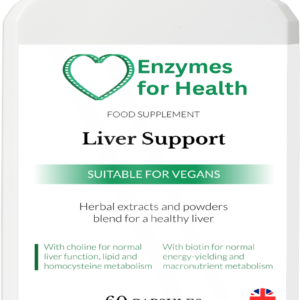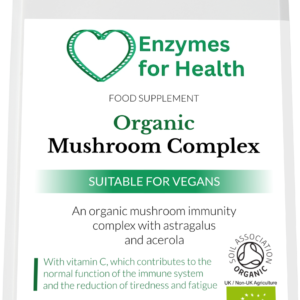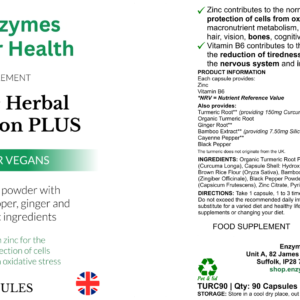-
×
 Organic Seaweed Blend
1 × £19.99
Organic Seaweed Blend
1 × £19.99 -
×
 Liver Support
1 × £15.99
Liver Support
1 × £15.99 -
×
 Polyphenol Immune Function
1 × £18.99
Polyphenol Immune Function
1 × £18.99 -
×
 Multi Vitamin Gummies
1 × £17.99
Multi Vitamin Gummies
1 × £17.99 -
×
 Organic Mushroom Complex
2 × £19.99
Organic Mushroom Complex
2 × £19.99 -
×
 Omega 3-6-9 Natures Blend
1 × £10.99
Omega 3-6-9 Natures Blend
1 × £10.99 -
×
 Organic Superfood Blend
1 × £24.99
Organic Superfood Blend
1 × £24.99 -
×
 Hair,Skin,Nails Formula
1 × £19.99
Hair,Skin,Nails Formula
1 × £19.99
Hormone Support Pack
£111.45 Original price was: £111.45.£100.30Current price is: £100.30.
Natural supplements have gained significant attention as effective aids for managing hormonal symptoms. These supplements, often derived from plants, offer a holistic approach to addressing hormonal imbalances that many women experience during transitional phases of life.
The hormonal Pack has been created with information taken from research results, which show, that herbal remedies and specific vitamins and minerals have made significant improvements in the quality of life for woman. Understanding these supplements can empower women to make informed choices about their health and well-being.
Categories: Product Bundles, Womens Health
Hormonal Changes and Their Effects
Understanding Menopause
Hormonal imbalances can occur due to a variety of factors, and understanding these can help women navigate the challenges of menopause more effectively. One significant cause is the natural decline in hormone production as women age, particularly oestrogen and progesterone. This decline can lead to a myriad of symptoms, such as hot flashes, mood swings, and sleep disturbances. Additionally, lifestyle factors such as stress, poor diet, and lack of exercise can exacerbate these imbalances, making it essential for women to adopt a holistic approach to their health during this transition.
The transition into menopause is often divided into three stages: perimenopause, menopause, and postmenopause. Perimenopause can begin several years before menopause, during which time women may experience irregular menstrual cycles and a variety of symptoms, including hot flashes, mood swings, and sleep disturbances. Recognising these early signs is crucial, as they signal the body’s gradual shift towards menopause. Women can take proactive steps, such as adjusting their diet and incorporating herbal remedies, to alleviate some of these initial symptoms.
Menopause itself is defined as having occurred when a woman has not had a menstrual period for twelve consecutive months. This stage is often accompanied by more intense symptoms, including night sweats, weight gain, and increased anxiety. At this point, women may benefit from natural supplements and mindfulness techniques to help manage these changes. Embracing a holistic approach to wellness during menopause can facilitate a smoother transition, allowing women to maintain their health and vitality.
Postmenopause follows menopause and lasts for the rest of a woman’s life. During this stage, hormonal levels stabilise at a lower level, and many women find that some of the more severe symptoms begin to diminish. However, the risk of certain health issues, such as osteoporosis and heart disease, can increase. It is essential for women to focus on nutritional adjustments and regular physical activity to support their overall health in this stage of life. Continued mindfulness practices can also help manage any lingering emotional challenges.
Understanding the stages of menopause empowers women to embrace this natural transition with knowledge and confidence. By exploring natural remedies, dietary changes, and stress management techniques, women can effectively navigate the symptoms associated with hormonal changes. This journey can be an opportunity for growth and self-discovery, leading to a more balanced and fulfilling life as they enter this new phase.
Hormonal Changes in Adolescence
Hormonal changes during adolescence are a critical phase in a woman’s life, laying the foundation for future hormonal health. As young girls transition into womanhood, their bodies undergo a series of transformations driven by hormones such as oestrogen and progesterone. These hormones play significant roles in regulating the menstrual cycle, influencing mood, and affecting physical development. Understanding these changes is essential for recognising how they can impact a woman’s health later in life, including during menopause.
During puberty, the surge of hormones can lead to various physical and emotional symptoms. Many adolescents experience mood swings, which can be unsettling for both the young women and those around them. These emotional fluctuations are often a result of hormonal imbalances that occur as the body adjusts to new levels of oestrogen and progesterone. Awareness of these changes can help young women and their caregivers navigate this challenging time, fostering a supportive environment that encourages open discussions about hormonal health.
Additionally, the nutritional choices made during adolescence can significantly affect hormonal balance. A diet rich in whole foods, including fruits, vegetables, lean proteins, and healthy fats, can support the body’s natural hormonal functions. Incorporating specific nutrients, such as omega-3 fatty acids and antioxidants, can also play a role in alleviating some of the emotional symptoms associated with hormonal fluctuations. Understanding the importance of nutrition during this period can prepare young women for healthier hormonal balance throughout their lives.
Be the first to review “Hormone Support Pack” Cancel reply
Related products
Sale!
Antioxidants
















Reviews
There are no reviews yet.